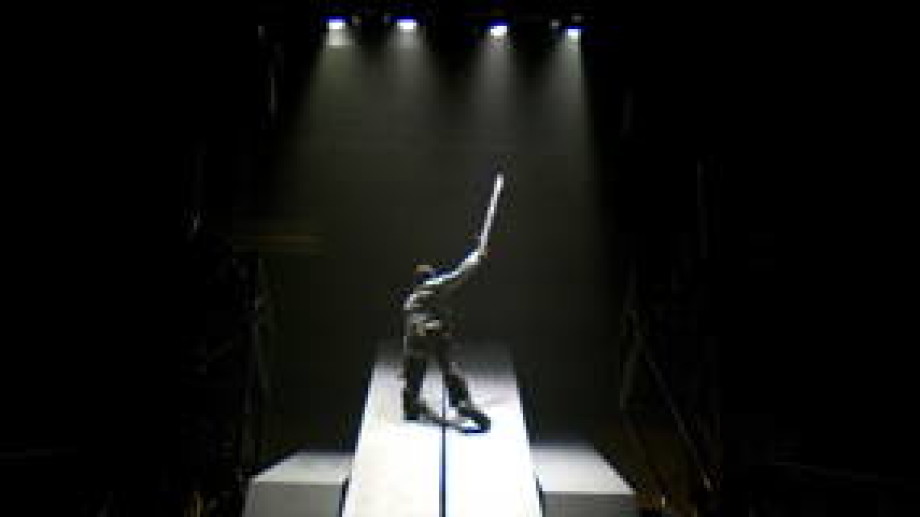
Wagner's Dream, the latest documentary by filmmakers Susan Froemke and Bob Eisenhardt, follows the journey of one of the boldest and most elaborate productions ever put on by the Metropolitan Opera. In an effort to reinvigorate the art form and to broaden their audience base, the Met hired iconic stage director Robert Lepage to stage Richard Wagner's Ring Cycle. Lepage sought to realize the cycle of epic operas as he always believed Wagner has envisioned them, using a set made of a series of indepedently moving fiberglass and aluminum planks, video projection, 3D, singers flying from harnesses, and motion sensing technology to create the setting of the famous story.
Susan Froemke, who had previously worked with Pete Gelb (the current Met General Manager) on her film The Audition, about the finalists of the Met's National Council Auditions, said she was not terribly familiar with Richard Wagner's iconic Der Ring des Nibelungen. She had previously seen a production of the full cycle in the 1990s and had surrendered herself to the experience. Eisenhardt was relatively unfamiliar with the piece as well. Eisenhardt and Froemke knew when they heard Robert Lepage was attached to the production that it would be something amazingly new and different. They knew it would be exciting and adventurous and that “The Machine” —the nickname for Lepage's 90,000 pound computerized set—would make waves with critics and audience alike. It was clear to them that this could be a potentially history-making project.
The filmmaking process took place over the course of four years. Relying heavily on the cinéma vérité style of documenting, the filmmakers ended up with a honest and truthful look at the Ring cycle's journey to fruition. Froemke and Eisenhardt began to document the progress in Quebec City as Lepage's production company Ex Machina worked on the beginning stages of the set and ironed out many of the kinks involving the creative technology. The filmmakers said that, due to a slight language barrier, it was at first difficult to gain the trust of Lepage's team, but gradually doors opened to them. When they moved to rehearsals at the Met, nothing was off-limits.
Froemke and Eisenhardt were given access to all aspect of the creative process, from speaking to actors and the director to going backstage and filming the stage crew moving the enormous wooden planks. They show the mistakes made, the many technical glitches, and the terrified faces of many actors stepping onto the moving set for the first time. They show the doubt, the frustration, and the joy. Everything about this documentary feels organic and raw from start to finish.

Despite their unprecedent access, every day the filmmakers had to negotiate to get the footage they wanted. Some singers didn't want to be filmed as they were under an incredible amount of stress and the filmmakers had to respect that. Eisenhardt added that, as documentarians, “you can never have too much footage.” Initially, they only intended on filming the first cycle, Das Rheingold, but they were so taken by the presence of Deborah Voigt (Brünnhilde) and the change in singers playing Siegfried that they continued to film the staging of the other four cycles. In fact, they filmed up until about 6 weeks before their first screening of Wagner's Dream.
Froemke, whose other recent documentary Escape Fire: The Fight to Rescue American Healthcare screened at FIlm Society as part of this year's Human Rights Watch Film Festival, said opera can be nearly as polarizing as the American healthcare system. Diehard “Ringers” were infuriated by Lepage's reinvisioning. Many critics, too, felt the set was such a presence on stage that it was almost as if it were its own character. Some also felt it took away from the beauty of the music and natural elements of the story. However, Eisenhardt and Froemke disagree with this assertion entirely. They grew to love the production and are excitedly looking forward to the return of Der Ring des Nibelungen (the complete cycle) to the Metropolitan Opera in the Spring of 2013.
Ultimately, their goal was not to make people fans of Wagner's epic pieces or of Lepage's direction, but to show how many people it takes to put on a live theatrical performance. In the end, it is not the critical or even the audience reception that matters. What matters is the long and incredible creative journey. What matters is taking risks. And if they can get even one new person interested in the process and the art form of opera, said Eisenhardt and Froemke, the film has done it job.
Join filmmakers Susan Froemke and Bob Eisenhardt for a Q&A following our Art of the Real screening of Wagner's Dream this Thursday at 6:30pm. Can't make it? Don't fret! The film is also opening for a week-long theatrical run at Film Society.



